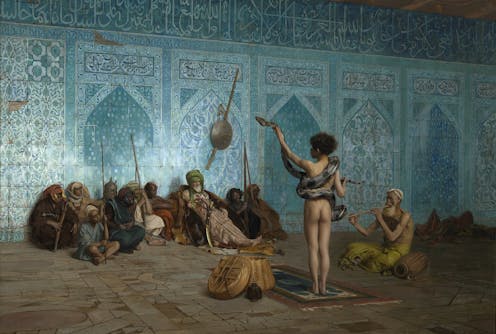Edward Said's groundbreaking book explained
- Written by Cyma Hibri, PhD, University of Sydney

Whether you’re conscious of it or not, you likely have a vivid mental image of what the Middle East looks and sounds like. You might envision a sparse landscape, the air warped by heat and yellowed with flurries of sand. You might hear the plucking of an oud[1], or a haunting voice singing in a double harmonic scale[2].
This viral TikTok video[3] captures just how salient these tropes are in our collective awareness and in popular media. Here, TikTokers collaboratively satirise features commonly found in Hollywood films about the Middle East, such as Beirut[4] (2018), American Sniper[5] (2014), and Argo[6] (2012).
The video spoofs “the yellow filter”, a colour-grading style used when depicting places perceived as impoverished or rife with conflict. We also hear a crude rendition of “Arabic” music, and someone poses as a “lady in lots of fabric staring at the camera”, parodying the unsettling mystique attributed to Middle Eastern women.
Read more: Shantaram – the Black white man's burden[7]
Read more https://theconversation.com/orientalism-edward-saids-groundbreaking-book-explained-197429

















